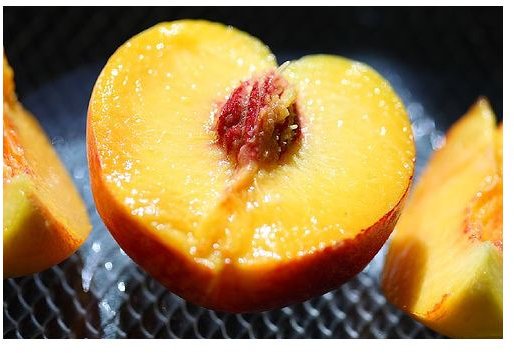Peaches: The Health Benefits and Nutritional Value of Peaches
The History of Peaches
Peaches are originally from China, with written records of this stone fruit dating back to the tenth century B.C. They were a favored food of the Emperors, valued for their remarkably sweet nectar. The Persians introduced peaches to the Romans, who called them ‘Persian plums’ or prunus persica. The peach then made its way to the New World, carried by the Spanish conquistadors, where this fruit was quickly spread throughout the Americas. Today, the United States is one of the largest growers of peaches, along with China, Italy, and Greece.
Peaches and Nutrition
As delicious, and syrupy sweet as peaches are, they also are an incredibly nutritious fruit. Peaches are rich in vitamin C, needed for immune health and cellular regeneration, as well as vitamin A through carotenes. Vitamin A also helps to boost the immune system and protect the body from infection by protecting mucous linings in the respiratory system. Peaches also provide a small amount of the B-complex vitamins, vitamin E and vitamin K.
The nutritional value of peaches also includes an array of minerals. They are an excellent sources of potassium, which helps to balance sodium in the body and regulate blood pressure; magnesium, for bone, nerve, and muscle tissue health; copper for energy production; and, iron which is required by hemoglobin molecules to transport oxygen throughout the body. Eating fresh, raw peaches is the most effective way to get the full nutritional value, from the vitamins and minerals, to all of the beneficial phytonutrients found in peaches.
Health Benefits of Peaches
With their orange-reddish skin, and golden-pink flesh, peaches are wonderful sources of the pigment-related antioxidants, lycopene and lutein. Eating plenty of lycopene-rich foods, such as tomatoes, red peppers, and watermelon, is linked to a reduction in the risk of many forms of cancer. Lycopene is also known to help lower LDL or bad cholesterol levels, protect enzymes and cellular DNA, and prevent such diseases as heart disease and macular degeneration. Lutein, responsible for the yellow pigment in peaches, is an extremely important antioxidant for eye health, and the prevention of oxidative damage to the eyes.
Rich in other antioxidants, such as flavonoids, the health benefits include helping to neutralize free radical damage, therefore slowing deterioration and the aging process, and preventing disease. Peaches are also an excellent food for detoxification, with a high water content, nutrients, and fiber, eating peaches helps to cleanse the body and replace vitamins and minerals at the same time.
The peach season is from May to October, with the summer months being the best time for fresh, ripe peaches. Canned or processed peaches do have some nutritional value, but not nearly the same health benefits as fresh peaches. Enjoy peaches with breakfast, as a snack, or for dessert.
Sources:
World’s Healthiest Foods
photo credit: Total Aldo
